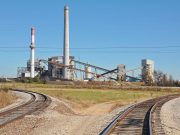Why are investments low and how can the country increase investments to generate jobs...
By Calixto V. Chikiamco
Given these reasons on why the investment climate is quite poor, what are the solutions? Among these solutions are:
Open Finance: A case study for the regulatory sandbox approach
By Monique B. Ang
On June 17, the Bangko Sentral ng Pilipinas (BSP) issued Circular No. 1122, which set out guidelines for the adoption of the Open Finance Framework. Open finance is part of the BSP’s Digital Payments Transformation Roadmap for 2020-2023, which aims to promote financial inclusion. The salient provisions of the Circular are discussed below.
A new global tax regime
By Benedicta Du-Baladad
Rapidly shaping up at the global tax arena is a new tax regime that challenges the very core of generally accepted international tax rules and principles. Agreed to by 136 member countries of the Organization of Economic Co-operation and Development (OECD) on Oct. 8 is a historic tax pact in what could be the most drastic global tax reform of the century.
Engaging workers in The New Normal
By Benito Teehankee
The pandemic is forcing companies to rethink how they are managing people. Two major forces are pushing this. Firstly, work-from-home arrangements make it difficult, if not impossible, for managers to really know what workers are doing and to directly collaborate in a work process.
Why are investments low and how can the country increase investments to generate jobs...
By Calixto V. Chikiamco
IN THE FIRST PLACE, how is the country faring with respect to investments? Very poorly. Not just in foreign direct investments, but in domestic investments as well. Both in absolute numbers and in growth rates, the amount of investments (and the portion going into investment spending) is low.
Climate and coal, PSALM, NEA and NGCP
By Bienvenido S. Oplas, Jr.
Today is the second day of the 13-day UN Climate Conference 2021 in Glasgow, UK. Until last week, many news outlets from print, TV, and online reported many alarmist climate scenarios of what would happen unless the world gets out of fossil fuels especially coal. Consider these recent reports in BusinessWorld, (I included some local energy stories):
Stakeholder Maximization vs the Friedman Rule: What should business schools teach?
By Raul V. Fabella
Milton Friedman’s view (1971) that the social responsibility of business is to maximize shareholder value has guided business behavior over the last 50 years. With the dividends or capital gains, shareholders can dump the stocks of firms that violate their ethical standards; and can consume goods productive of externality of their choice.
A story bigger than Pharmally
By Kenneth Isaiah Ibasco Abante
We studied COVID-19 government contracts worth P20 billion. We found more red flags and systemic risks that the Commission on Audit (CoA) and the Senate should investigate.
Is Asia and the Pacific ready for the global climate stage?
By Armida Salsiah Alisjahbana
AS THE LEADERS of Asia and the Pacific prepare to head to Glasgow for the 26th United Nations Climate Change Conference of the Parties (COP26), they can be sure that our region will be in the spotlight: many of the most vulnerable countries to the impacts of climate change are located here; the seven G20 members from this region are responsible for over half of global GHG (greenhouse gas) emissions; and five of the 10 top countries with the greatest historic responsibility for emissions since the beginning of the 20th century are from Asia.
Letter to the Editor (10/31/21)
I write to commend you for adding an editorial note about the safety of COVID-19 vaccines despite Mr. Oplas’s claims that the increase in recorded deaths may have been due to the COVID vaccinations. There are other inaccuracies in his statements regarding non-communicable diseases (NCD).
Rejoinder to the letter by Dr. Ulysses Dorotheo
By Bienvenido S. Oplas, Jr.
1. “Clearly, there are less people smoking… contributed to the flattening of NCD mortality figures”
That creeping game changer
By Diwa C. Guinigundo
For those of us old enough to remember, the sharp increases in oil prices led to the oil crises in 1973 and 1979. Output slumped in the US, Europe, and Japan by sizeable amounts in 1973 while the global economy dropped by about 3% in 1979. In developing countries like the Philippines, we experienced queuing up for rationed fuel in gas stations.















